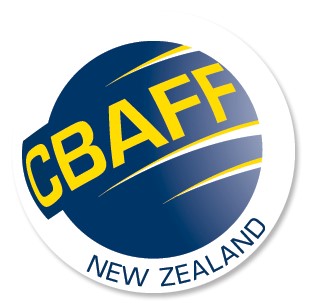CBAFF November 2023 In 2021, New Zealand became a signatory to the Clydebank Declaration. That commits us to support the establishment of green shipping corridors or shipping route on which zero-carbon emissions ships and other emissions reduction programmes are deployed, and emissions reductions are measured.
The shipping sector is the lifeblood of global trade, accounting for approximately 80 percent of all trade. The sector also represents about 3 percent of total CO2 emissions, that is to say that if shipping was a country, it would be the 6th biggest CO2 emitter. The prediction is that shipping emission will increase and account for upwards of 17% of GHGs by 2050.
On Friday 24 November the Maersk McKinney Moller Centre for Zero Carbon Shipping hosted a workshop focused on establishing these shipping corridors. Simon Dedman, CBAFF council member, was present on the day and actively participated in the plenary discussions. The workshop objective was to present key findings from the centre pre-feasibility study and provide methodologies to support stakeholders in independently managing and delivering operational green corridors. The aim was to bring together stakeholders across the maritime value chain and facilitate early collaboration to form consortia that can lead decarbonization projects from concept to commercialization.
The event was well attended with more than 30 delegates from shipping companies, ports, fuel producers, government agencies and more. While early findings favoured ammonia as an alternative fuel for New Zealand, this was met with disagreement by attendees who felt the analysis relied too heavily on secondary data rather than direct industry insights. For instances, we note the Chinese developer Goldwin is aiming to make green methanol one of the most important and economically feasible clean maritime fuels in the future, and their signed agreement with A.P. Moller–Maersk for the first large oceangoing methanol-enabled vessel (16,000 TEU) to be delivered in the first quarter of 2024.
All present acknowledged the need to decarbonize shipping but cited challenges around commercial viability and information sharing. In later facilitated discussions (with a focus on New Zealand), coastal container routes, service tugs, NZ timber, NZ cruise and Auckland/Pacific Islands routes were identified as top priorities for potential green corridors amongst the attending stakeholders.
These reflects NZ recorded efforts thus far which include the Interislander ferries, Auckland's delivery (2024) of two state-of-the art electric ferries, as well as Transport Minister Michael Wood comment earlier this year "... I think through ... work on our domestic fleet we can start to investigate and get some of the infrastructure in place at some of our key ports, and then begin to broaden out to probably the more complex and more investment-heavy sort of infrastructure you’d need for bigger ocean-going vessels."

RSS Facebook Email Linkedin